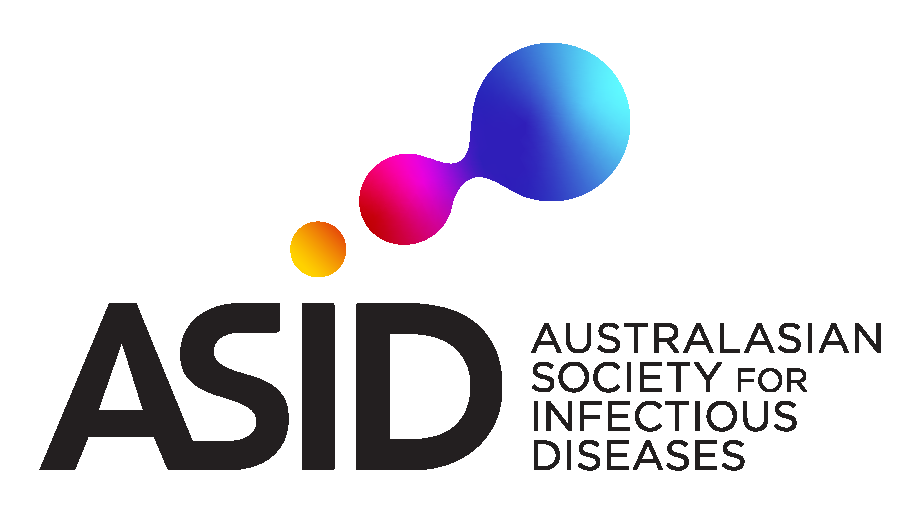The rise of drug resistant “superbugs” is one of the most significant public health challenges of our time: World Antimicrobial Resistance (AMR) Awareness Week 2024
“The loss of effective antimicrobials due to overuse and misuse is putting lives at risk and threatens to undo decades of progress in modern medicine. ASID calls on governments to adequately invest in interventions that prevent unnecessary use and misuse of antimicrobials, as well as exploring innovative treatments for the superbugs that are already affecting our communities.”
The Australasian Society for Infectious Diseases (ASID) marks World Antimicrobial Resistance (AMR) Awareness Week 2024 and advocates for new models to ensure Australia and New Zealand have access to novel antimicrobials.
As we mark World Antimicrobial Resistance (AMR) Awareness Week 2024, ASID emphasises the critical need for urgent and sustained action to combat the growing threat of drug-resistant infections in Australia and New Zealand, as well as across our neighbouring Southeast Asia region, where the burden is significant.
The loss of effective antimicrobials due to overuse and misuse is putting lives at risk and threatens to undo decades of progress in modern medicine. ASID calls on governments to adequately invest in interventions that prevent unnecessary use and misuse of antimicrobials, as well as exploring innovative treatments for the superbugs that are already affecting our communities.
A key strategy to address this challenge is ensuring the continued availability of novel antimicrobial agents that can effectively treat these resistant germs. However, the current market-driven approach to the development of new antimicrobials has proven inadequate. The economic incentives for pharmaceutical companies to invest in the development of new antimicrobials are limited, primarily because of the high cost of research and development, and the relatively small market for these drugs once they are approved.
In response to this gap, ASID advocates for the creation of a subscription-based funding model for novel antimicrobials in Australia and New Zealand, where governments would commit to paying a fixed fee rather than pharmaceutical companies relying on traditional volume-based sales. This model, inspired by a successful model already piloted in the UK, would provide a sustainable mechanism for ensuring the availability of new and highly effective antimicrobials to treat drug-resistant infections, while also ensuring fair access for patients who need them most.
This approach would help balance the need for innovation with responsible use of new drugs. It would provide reliable access to some of the most needed new antibiotics, where access is currently difficult, delayed in inequitable.
ASID calls on both the Australian and New Zealand governments to take bold action and explore the implementation of such a subscription model. By replicating the successful pilot program rolled out by the UK in recent years, this initiative would not only enhance our ability to fight drug-resistant infections but also position Australia and New Zealand as global leaders in tackling the threat of AMR.
We must act now to ensure that we continue to have effective, life-saving medicines to treat infections for our current and future generations.
Reference Information:
Australian Government Department of Health (2019). Australia's National Antimicrobial Resistance Strategy 2020 and Beyond. https://www.health.gov.au/initiatives-and-programs/national-antimicrobial-resistance-strategy
Ministry of Health, New Zealand (2017). New Zealand Antimicrobial Resistance Action Plan 2017. https://www.health.govt.nz/publication/new-zealand-antimicrobial-resistance-action-plan-2017
CARAlert Annual Report: 2023 | Australian Commission on Safety and Quality in Health Care
Laxminarayan, R., et al. (2020). The Neglected Antibiotics Market Failure: Addressing the Global Challenge of Antimicrobial Resistance. https://www.thelancet.com/journals/laninf/article/PIIS1473-3099(19)30316-8/fulltext
Claxton, K., et al. (2015). A systematic review of the use of subscription-based and alternative market mechanisms for the financing of new antibiotics. https://www.thelancet.com/journals/laninf/article/PIIS1473-3099(15)00078-7/fulltext
Barton, M., & McMullan, M. (2018). Economic and Policy Solutions to Promote Antibiotic Innovation and Reduce Antimicrobial Resistance. https://www.cmu.edu/
“Netflix” for antimicrobials: The Antimicrobial Products Subscription Model
ENDS
Media Contact: Alison Sweeney alison@asid.net.au or 0425 221 155.

